Menu

Ball Bearings
Product type
Availability
Price
$0
$51.15
6201-2RS Ball Bearing - C3 Clearance - 12x32x10
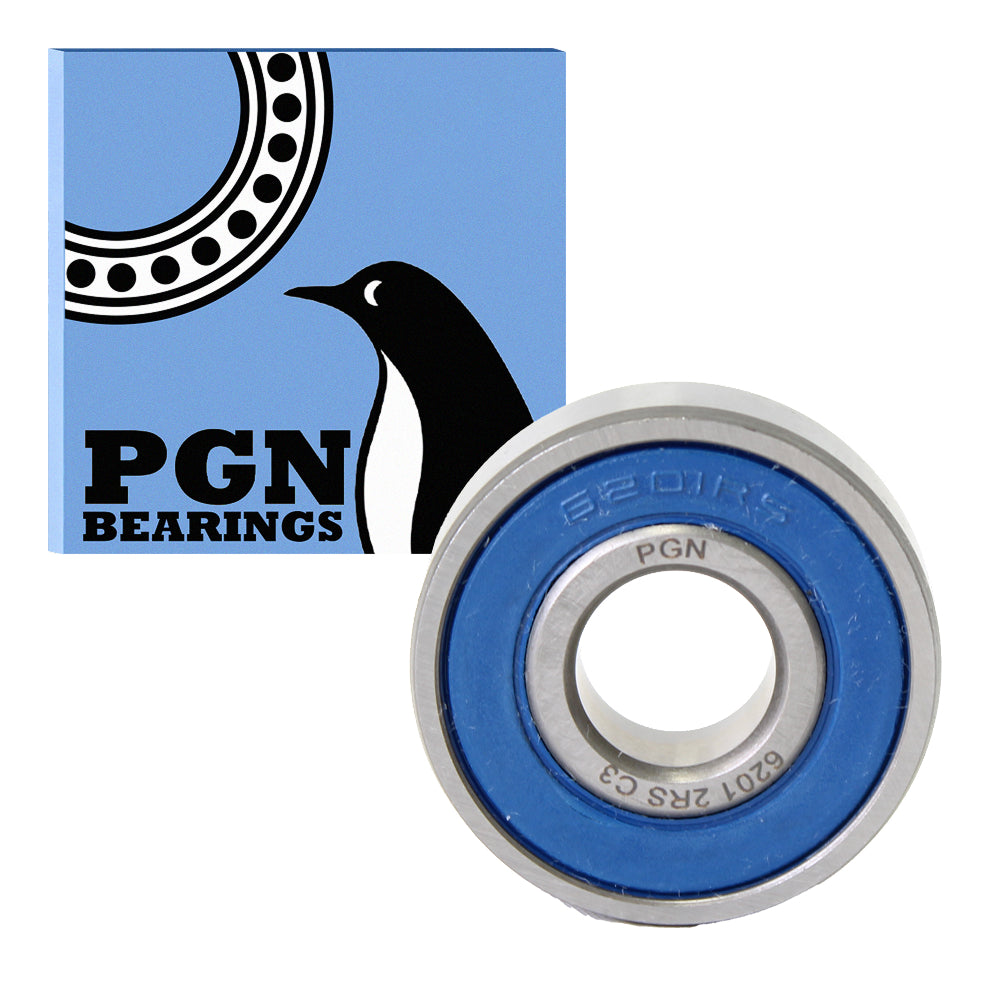
Quick View

6201-2RS Ball Bearing - C3 Clearance - 12x32x10
- Price
- $1.35
R16-2RS Ball Bearing - C3 Clearance - 1"x2"x1/2"
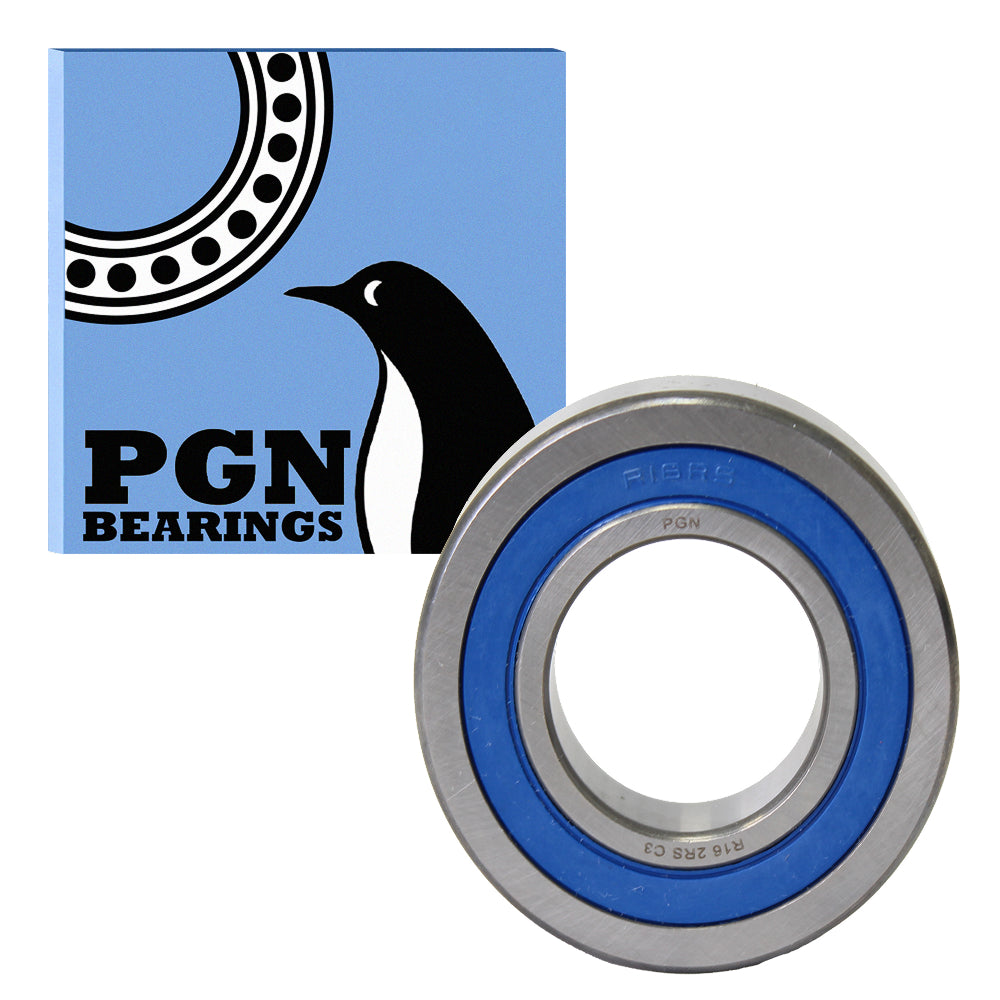
Quick View

R16-2RS Ball Bearing - C3 Clearance - 1"x2"x1/2"
- Price
- $3.60
6005-2RS Ball Bearing - C3 Clearance - 25x47x12
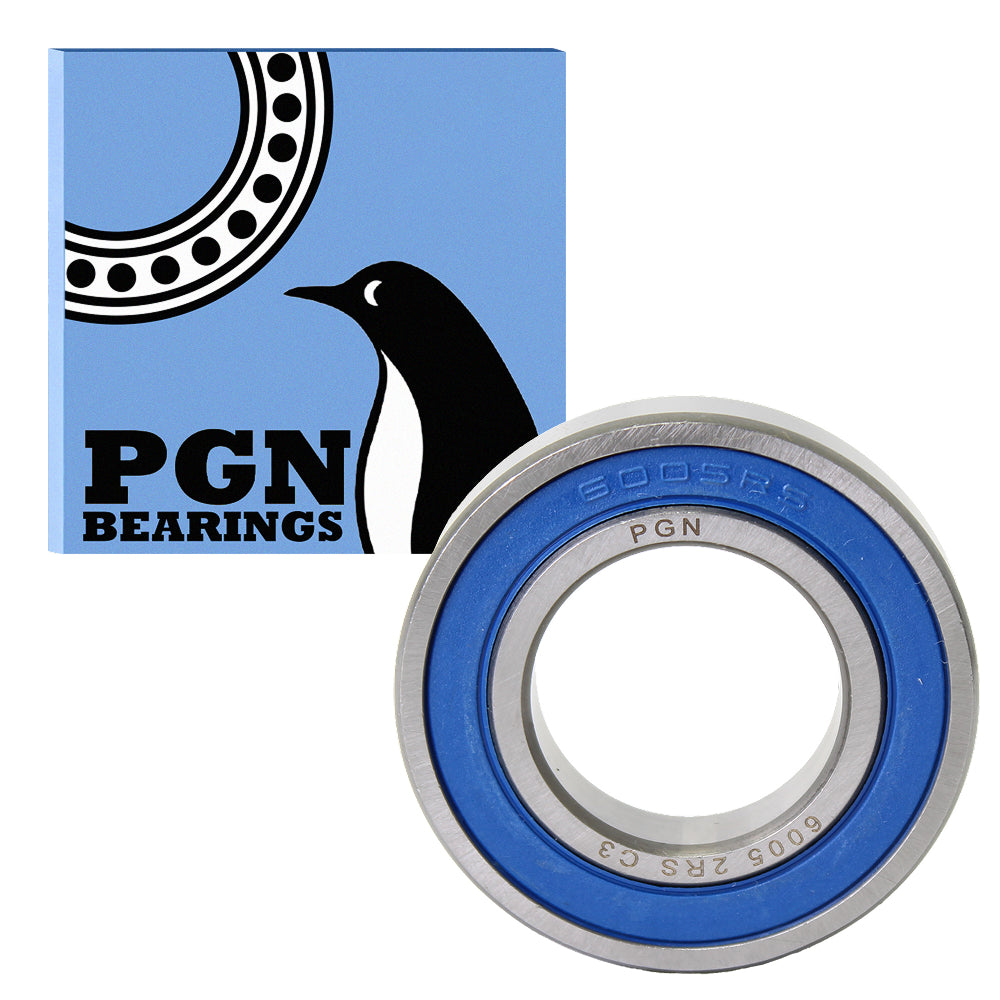
Quick View
Sold out

6005-2RS Ball Bearing - C3 Clearance - 25x47x12
- Price
- $2.05
6203-ZZ Ball Bearing - C3 Clearance - 17x40x12
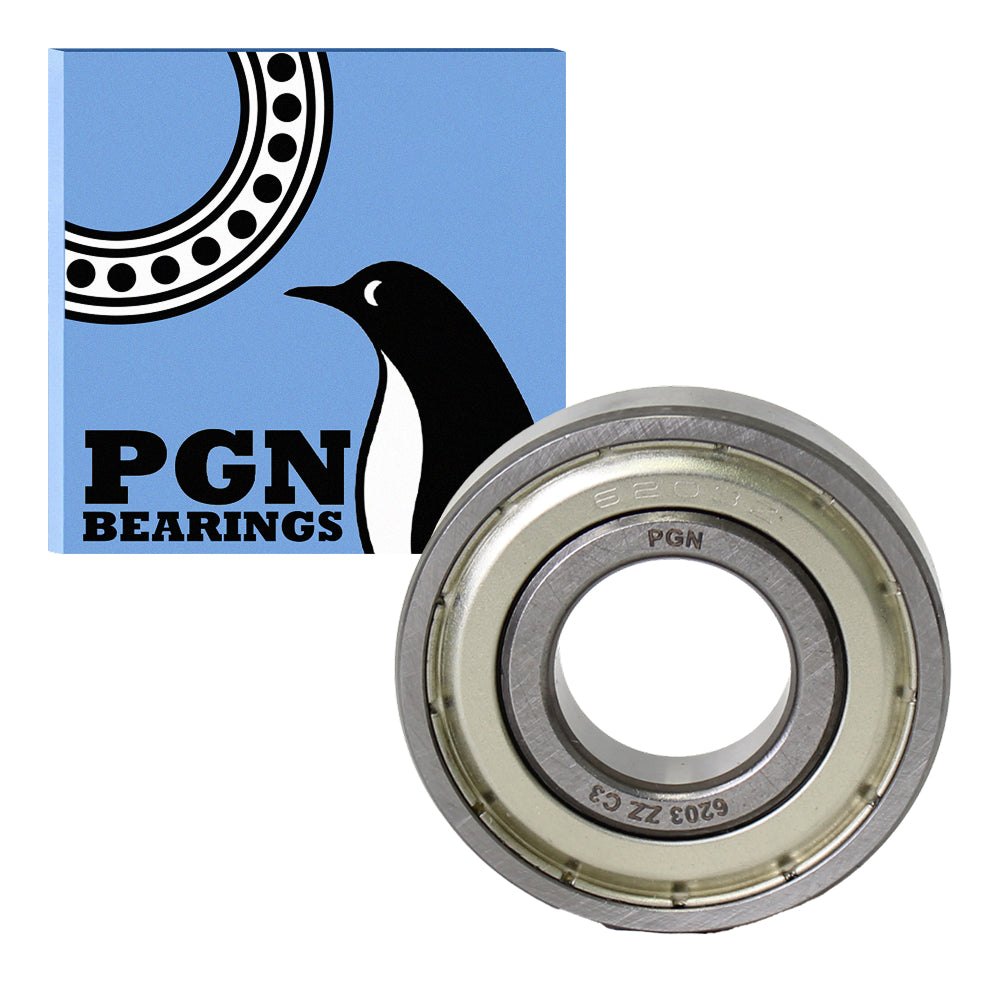
Quick View

6203-ZZ Ball Bearing - C3 Clearance - 17x40x12
- Price
- $1.52
6200-ZZ Ball Bearing - C3 Clearance - 10x30x9
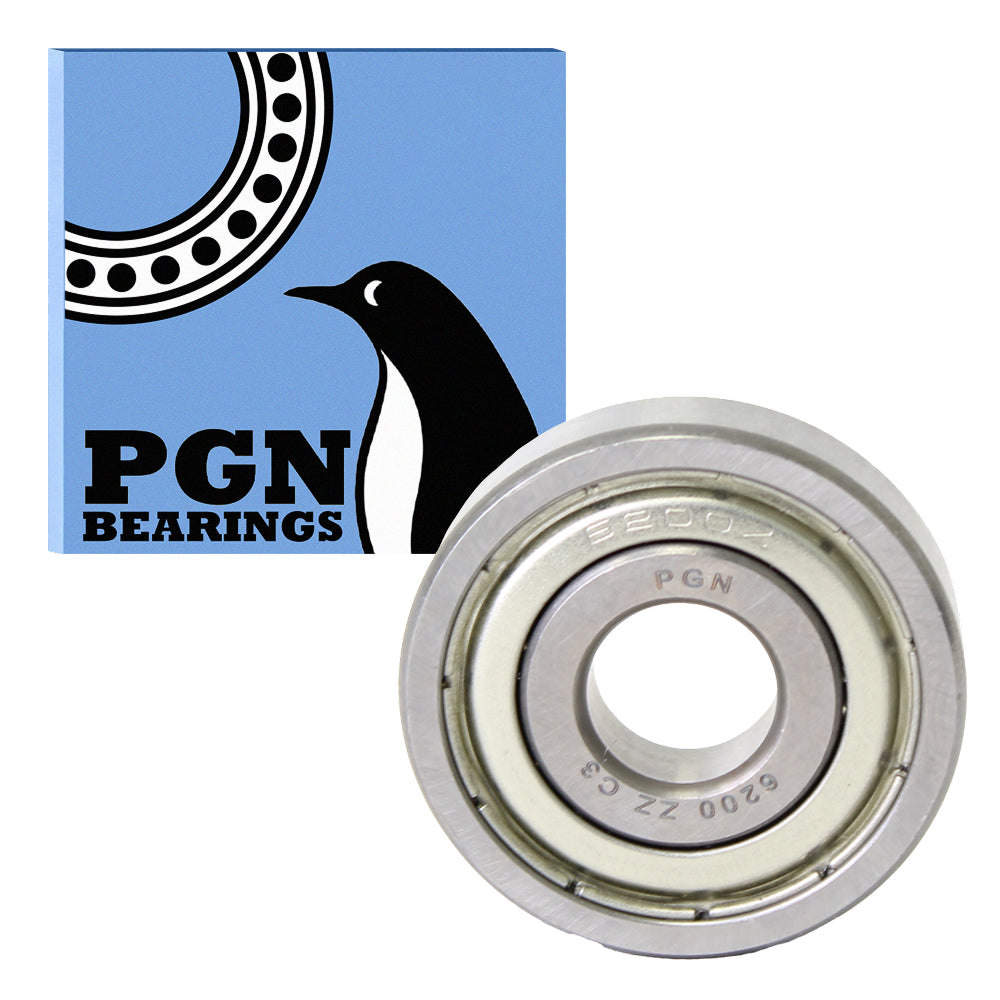
Quick View

6200-ZZ Ball Bearing - C3 Clearance - 10x30x9
- Price
- $1.04
6201-ZZ Ball Bearing - C3 Clearance - 12x32x10
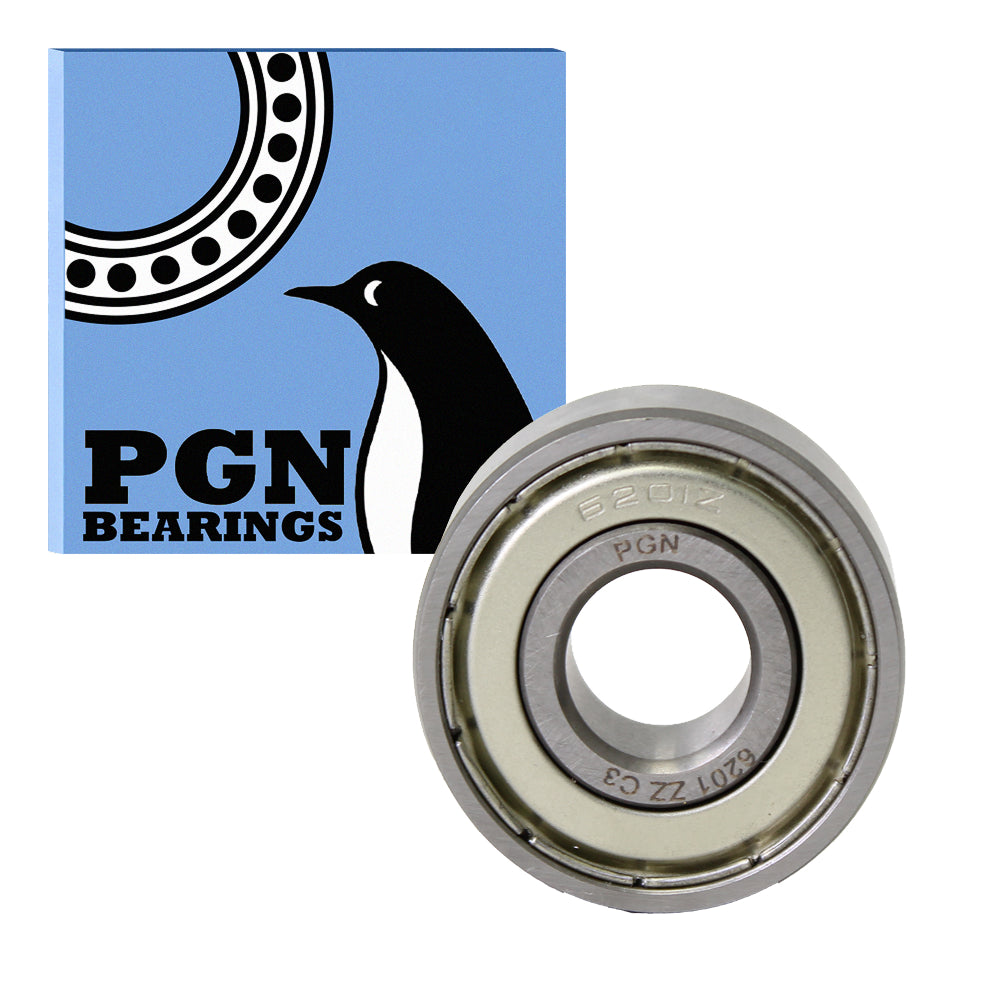
Quick View

6201-ZZ Ball Bearing - C3 Clearance - 12x32x10
- Price
- $1.35
R4-2RS Ball Bearing - C3 Clearance - 1/4"x5/8"x0.196"
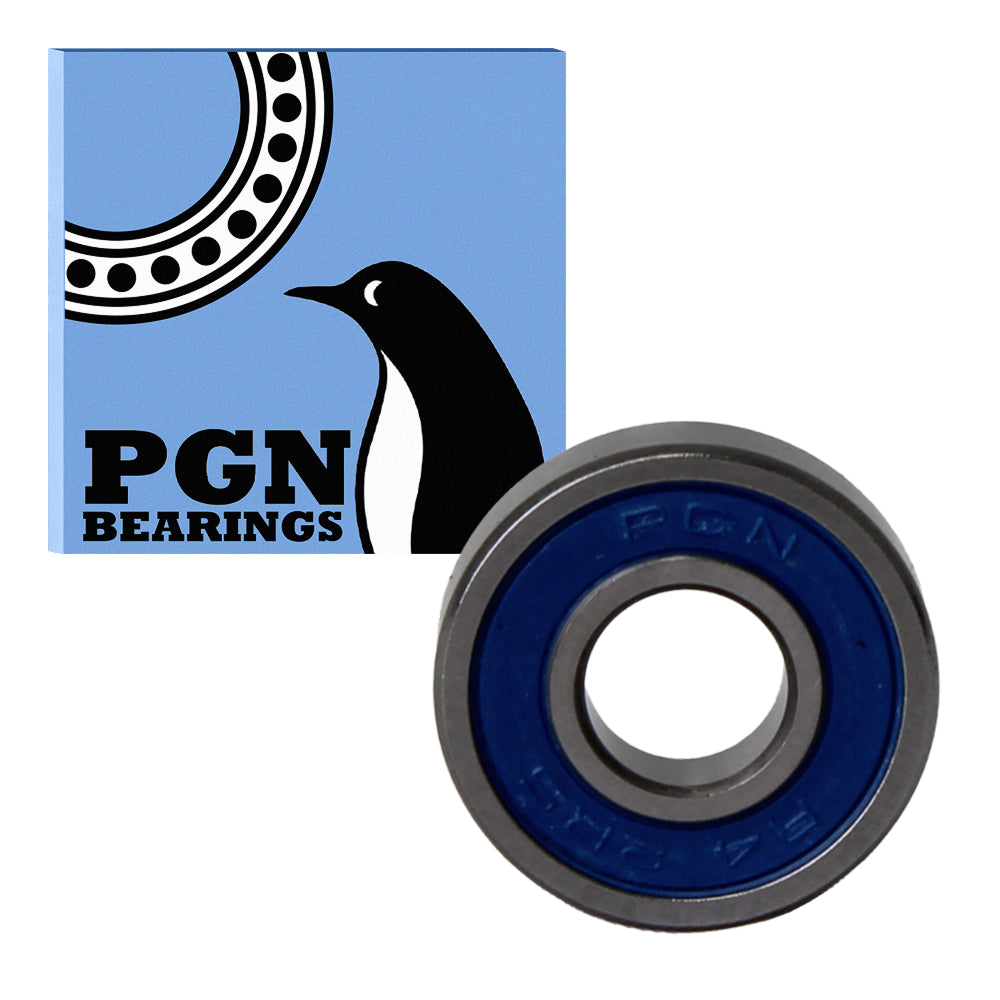
Quick View

R4-2RS Ball Bearing - C3 Clearance - 1/4"x5/8"x0.196"
- Price
- $0.95
6002-2RS Ball Bearing - C3 Clearance - 15x32x9
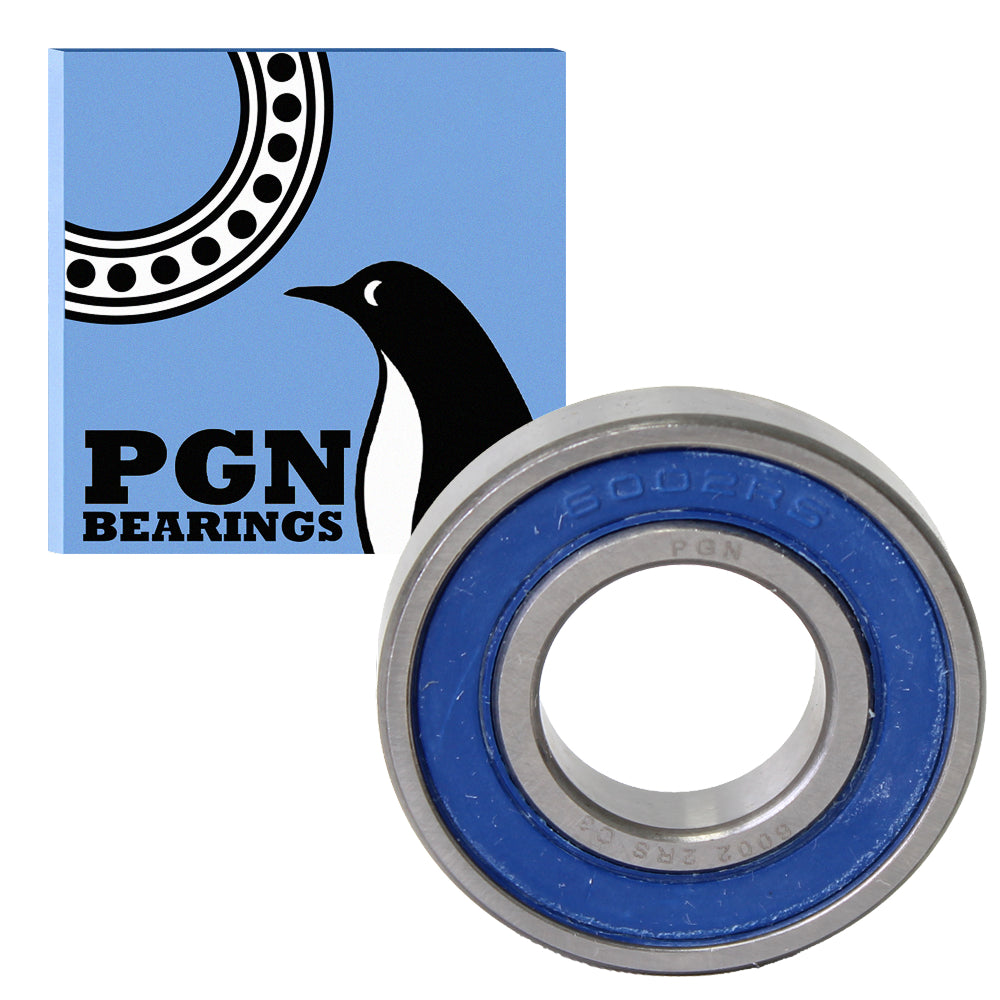
Quick View

6002-2RS Ball Bearing - C3 Clearance - 15x32x9
- Price
- $1.15
6000-ZZ Ball Bearing - C3 Clearance - 10x26x8

Quick View

6000-ZZ Ball Bearing - C3 Clearance - 10x26x8
- Price
- $0.98
6003-2RS Ball Bearing - C3 Clearance - 17x35x10

Quick View

6003-2RS Ball Bearing - C3 Clearance - 17x35x10
- Price
- $1.25
6001-ZZ Ball Bearing - C3 Clearance - 12x28x8

Quick View

6001-ZZ Ball Bearing - C3 Clearance - 12x28x8
- Price
- $1.00
6202-ZZ Ball Bearing - C3 Clearance - 15x35x11
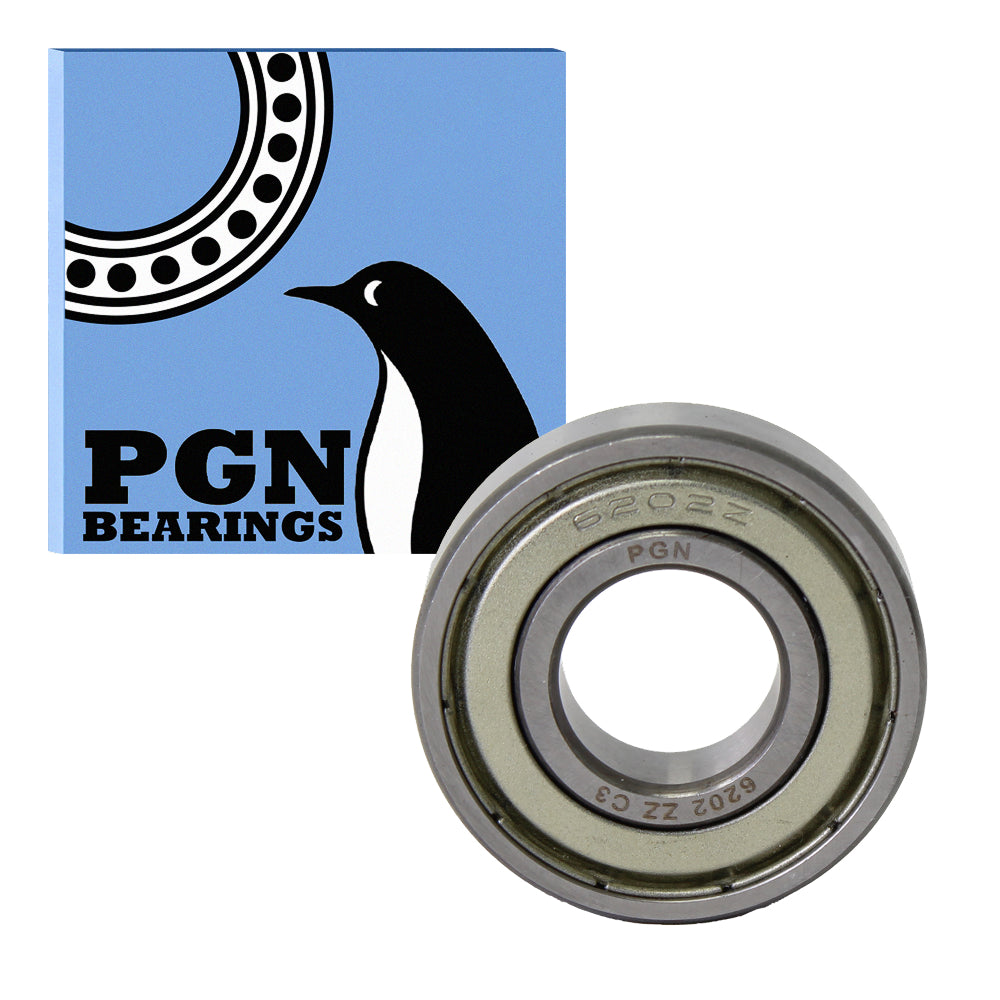
Quick View

6202-ZZ Ball Bearing - C3 Clearance - 15x35x11
- Price
- $1.45
99502H NR Snap Ring Sealed Bearing - 5/8"x1-3/8"x 0.433" - 499502H

Quick View

99502H NR Snap Ring Sealed Bearing - 5/8"x1-3/8"x 0.433" - 499502H
- Price
- $1.59
6006-2RS Ball Bearing - C3 Clearance - 30x55x13

Quick View
21% off

6006-2RS Ball Bearing - C3 Clearance - 30x55x13
- Sale price
- $2.35
- Regular price
- $2.99
6206-2RS Ball Bearing - C3 Clearance - 30x62x16
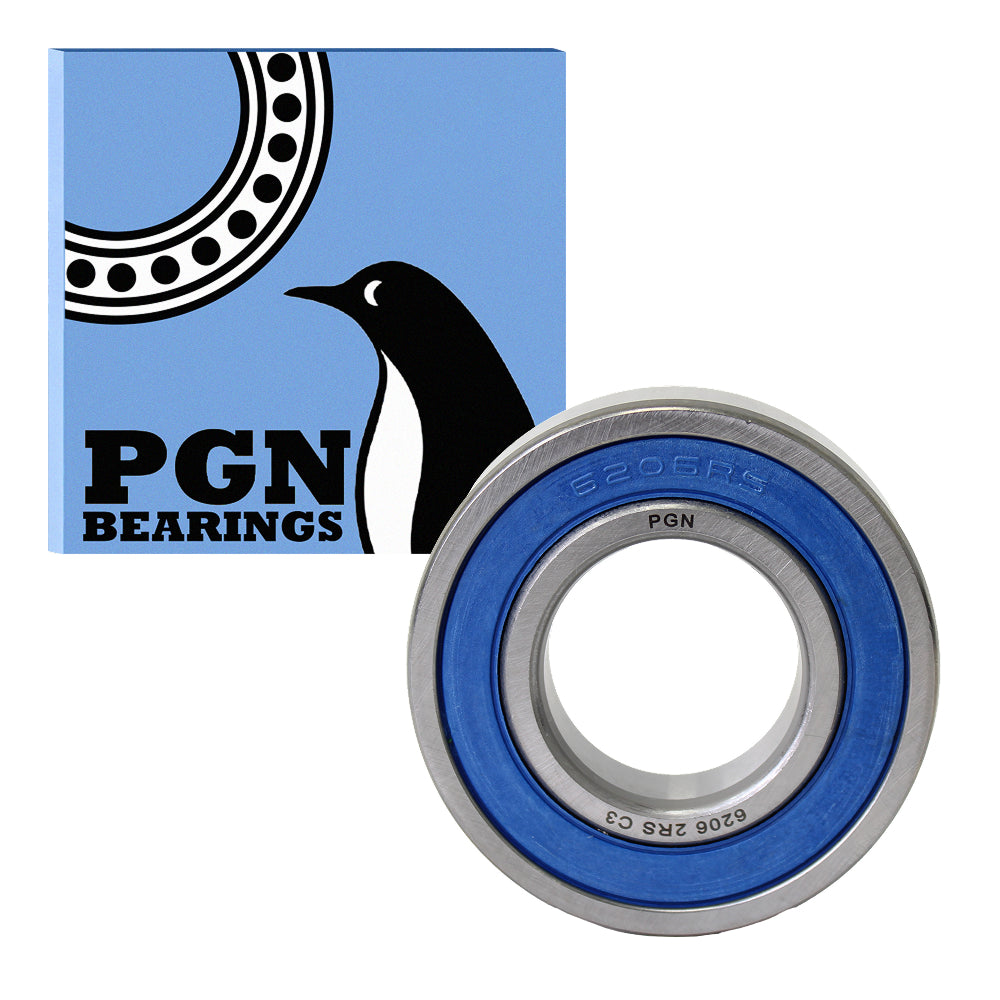
Quick View
54% off

6206-2RS Ball Bearing - C3 Clearance - 30x62x16
- Sale price
- $2.80
- Regular price
- $6.15
R10-2RS Ball Bearing - C3 Clearance - 5/8"x1-3/8"x0.3438"

Quick View

R10-2RS Ball Bearing - C3 Clearance - 5/8"x1-3/8"x0.3438"
- Price
- $2.15
High-Performance Ball Bearings for Maximum Efficiency
Ball bearings are essential components that ensure smooth, efficient, and quiet operation across a wide range of mechanical systems. From industrial machinery to automotive and residential applications, they reduce friction, handle loads, and extend the lifespan of equipment.
At PGN Bearings, you'll find a full selection of models designed to meet different needs in performance, size, and material.
With high-quality standards and fast shipping, our bearings provide the perfect solution for your project — from large-scale productions to regular equipment maintenance.
Read More
What Are Ball Bearings?
Ball bearings are mechanical components designed to enable smooth rotational movement between two surfaces.
They consist of steel balls positioned between two rings — the inner and outer race — which work together to reduce friction and support loads during motion.
The key components include:
-
Balls: maintain spacing between the races and evenly distribute the load;
-
Inner and outer rings: guide the movement and provide structural support;
-
Cage: holds the balls in place and prevents them from contacting each other directly.
Unlike other bearing types, such as roller bearings or self-aligning bearings, ball bearings are known for their versatility and efficiency at high speeds with moderate loads.
They are perfect for applications that demand precision, low noise, and extended durability.
What Is the Function of Ball Bearings?
The primary function of ball bearings is to enable smooth rotational motion between components while minimizing friction and supporting mechanical loads. This balance of movement and strength is crucial for maintaining stability and performance in various types of machinery.
Ball bearings are designed to handle both radial loads — which act perpendicular to the shaft — and axial loads, which occur in the same direction as the shaft.
This dual support capability makes them suitable for motors, wheels, shafts, and systems that demand high precision.
Ultimately, by reducing resistance and surface wear, ball bearings enhance a system’s mechanical efficiency. This leads to lower energy consumption, reduced maintenance, and extended equipment lifespan.
Where Are Ball Bearings Used?
Ball bearings are essential in many industries, offering smooth motion, friction reduction, and load support. Here are the main areas where they’re commonly used:
1. Automotive Industry
In the automotive sector, ball bearings are found in wheels, engines, transmissions, and steering systems. They ensure smooth and safe operation, even at high speeds and under demanding conditions.
2. Industrial and Agricultural Machinery
These bearings play a critical role in industrial and agricultural machinery, supporting shafts, pulleys, belts, and gears. Their reliability enhances productivity and extends machine lifespan.
3. Garage Doors, Trailers, and Light Equipment
Ball bearings are also ideal for garage doors, trailer kits, and other light-duty equipment. In these applications, they deliver smooth rotation and quiet operation, improving everyday convenience.
Types of Ball Bearings Available at PGN
At PGN Bearings, we offer a wide selection of ball bearings engineered to meet diverse technical requirements, dimensions, and use cases.
Our lines combine strength, precision, and high-quality materials to deliver top performance in industrial and everyday settings.
Popular Series
-
600 Series: Compact and versatile, the 600 Series is ideal for applications with limited space and light to moderate loads. Commonly used in small motors and fans, they deliver reliable performance.
-
6000 Series: Known for precision and strength, the 6000 Series supports both radial and axial loads. It’s widely used in electric motors, power tools, and automotive systems.
-
6200 Series: Built for more demanding environments, the 6200 Series offers durability and performance at higher speeds. A solid choice for industrial applications.
-
6300 Series: Designed for heavier loads, the 6300 Series is ideal for high-performance equipment. Its sturdy construction ensures long-lasting operation under continuous stress.
Other Lines
-
R Series: The R Series features compact bearings suited for light-duty machinery that requires precision in tight spaces. A cost-effective option for many mechanical setups.
-
RM Series: The RM Series is perfect for agricultural and industrial environments. Its robust design handles dust, vibration, and fluctuating loads with ease.
-
SER Insert Bearings: SER insert bearings are easy to install and ideal for systems that need quick replacement. They combine durability with versatility for ongoing performance.
-
Special Bearings: PGN’s special bearings are designed for non-standard applications, delivering custom-fit solutions without compromising on quality.
-
Garage Door Rollers: Our garage door rollers ensure smooth, quiet operation and are made from long-lasting materials — perfect for continuous residential or commercial use.
-
Trailer Kits: PGN’s trailer kits include all necessary components for efficient trailer bearing maintenance or replacement, offering easy installation and reliable performance.
Technical Features of PGN Ball Bearings
PGN ball bearings are built to deliver high performance in demanding applications, combining strength, precision, and durability. Here are the key technical features that make our products reliable and efficient:
Materials (chrome steel, stainless steel, and more)
We use premium materials like chrome steel and stainless steel, known for their excellent resistance to corrosion, wear, and impact.
This ensures long-lasting performance even in environments with temperature changes, moisture, or debris.
Measurements (inner/outer diameter and width)
Our bearings are available in a wide range of sizes, with accurate inner and outer diameters and multiple width options. This flexibility makes them suitable for projects that require exact fits and tight tolerances.
Sealing, shielding, and lubrication
PGN bearings are offered with rubber seals (RS/2RS) or metal shields (ZZ/2Z) to protect against dust, moisture, and contaminants. They come pre-lubricated with high-quality grease, ensuring smooth, quiet operation and minimal maintenance.
Available Seal Types
PGN ball bearings are offered in three sealing options, each suited for different usage conditions. The open type has no sealing, allowing direct access to lubrication—ideal for setups with frequent maintenance or external lubrication systems.
The metal shielded versions (ZZ or 2Z) feature protective discs on both sides, which block dust and solid particles, making them suitable for moderately exposed environments.
Lastly, rubber-sealed bearings (2RS) provide the highest protection against moisture, dirt, and contaminants, and are recommended for demanding applications exposed to harsh elements.
Compatibility and Quality Standards
PGN ball bearings are manufactured following international quality standards, such as ISO norms. This ensures compatibility with equipment from various manufacturers and easy replacement.
The standardized dimensions also allow interchangeability with bearings from brands like SKF, NTN, Timken, and others—giving you more flexibility without compromising performance!
Why Choose PGN Bearings?
With proven quality, a wide selection of models, and fast delivery, PGN Bearings is the right choice for anyone looking for high-performance ball bearings. Whatever your project needs, we have the perfect solution in stock and ready to ship.
Browse our full collection of ball bearings and find the ideal fit for your application!
Frequently Asked Questions about Ball Bearings
1. How do I choose the right ball bearing for my project?
Selection depends on factors like load type (radial or axial), required speed, operating environment, and shaft/housing dimensions. PGN offers multiple series with size and seal variations for every need.
2. What’s the difference between 2RS, ZZ, and open bearings?
2RS bearings have rubber seals and are best for environments with moisture and debris. ZZ bearings have metal shields for dust protection. Open bearings have no seals and are used with constant external lubrication.
3. Are PGN bearings compatible with other brands?
Yes. Our products follow international standards like ISO, allowing interchangeability with brands such as SKF, NTN, and Timken.
4. Do PGN bearings come pre-lubricated?
Yes, all PGN bearings are pre-lubricated with high-quality grease, ready for immediate use in standard applications.
- Choosing a selection results in a full page refresh.
